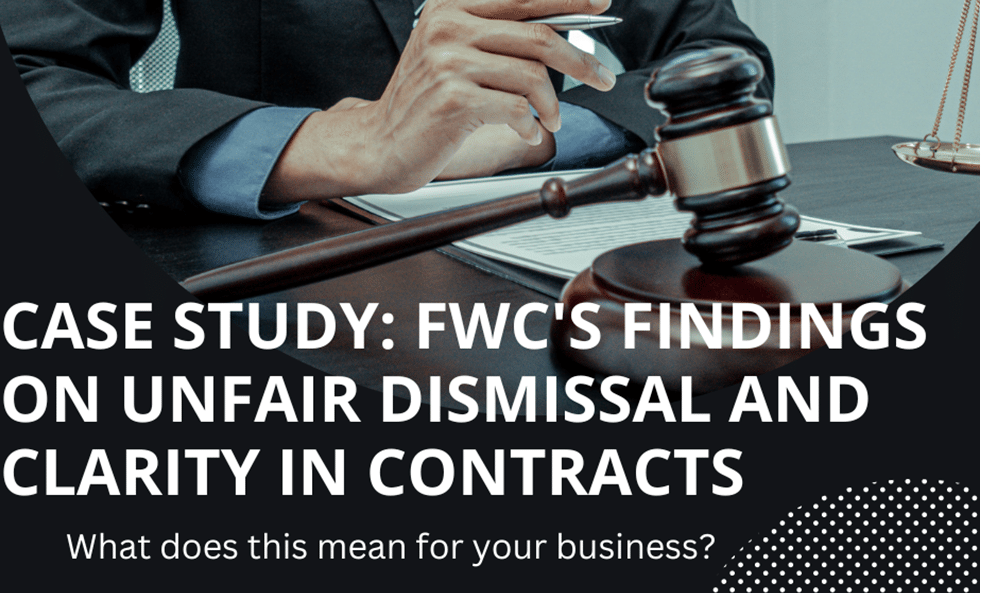Understanding the Importance of Clarity in Employment Agreements: A Fair Work Commission Case Study
In a recent case brought before the Fair Work Commission (FWC), a worker claimed unfair dismissal after transitioning from a permanent role to a time-limited position within a ports corporation. The dispute centered around whether the termination of the worker’s employment was unjust, given the circumstances surrounding the transition and subsequent end date of her contract.
Background of the Case:
The worker began her employment as a company secretary in 2013, later transitioning to the role of deputy company secretary and serving as acting company secretary on a temporary basis. When presented with options regarding her workload concerns, she opted to relinquish her permanent position in favor of a temporary role.
Unfair Dismissal Claim:
Following the expiration of her contract, the worker filed an unfair dismissal claim, arguing that her termination was unjust, unreasonable, or harsh. The employer contended that the termination was not initiated by them but rather resulted from the expiration of a time-limited contract.
FWC’s Considerations and Decision:
During the proceedings, the FWC evaluated whether the termination stemmed from the employer’s initiative or the natural conclusion of a time-limited contract. After reviewing the evidence and arguments from both sides, the FWC determined that the termination was indeed a result of the contract’s expiration.
Key to the FWC’s decision was the clarity of communication between the employer and the worker regarding the implications of her choice to transition to a temporary role. The employer effectively communicated the consequences of the worker’s decision, emphasizing the distinction between a permanent position and a temporary role with a specified end date.
The FWC underscored the importance of clarity in employment agreements, highlighting that the distinction between a “role” and a “position” is crucial. Had the worker maintained her permanent position, she would have retained certainty regarding her substantive role.
Takeaways:
This case serves as a reminder of the importance of clear communication and understanding in employment arrangements. Employers must ensure that employees are fully informed about the nature of their roles and any potential consequences of transitioning to temporary positions.
Employees, likewise, should carefully consider the implications of any changes to their employment status and seek clarification when needed. Understanding the distinction between permanent roles and time-limited contracts can help mitigate misunderstandings and potential disputes.
Ultimately, clarity and transparency are essential elements in fostering fair and mutually beneficial employment relationships. By prioritizing clear communication, employers and employees can navigate transitions and contractual agreements with greater confidence and understanding.
Adding clarity in your business’ employment agreement is something we specialize in. All parties deserve to clear expectations about any employment arrangement and we make sure you minimize any potential risk of FWC disputes as discussed. If you want to know more about how to minimize this risk, or if you want us to review your employment agreements and know where you stand, you can contact us on 0408 897 079 or at suzanne@performanceadvantage.com.au.





